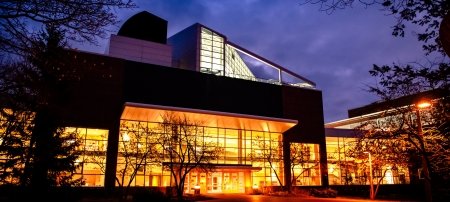Michigan Tech Remains Top Peace Corps School
Approximately 34 graduate students from Michigan Tech are serving in the Peace Corps around the world as part of their master's degree program. As a result, the Peace Corps has announced, Michigan Tech remains the university with the most Peace Corps Master's International (PCMI) program students in the nation. Tech ranked number one in the nation last year too.
Nationwide, 62 universities participate in the PCMI program. The University of Washington came in a distant second to Michigan Tech, with 19 graduate students currently serving abroad in the Peace Corps.
Blair Orr, professor of forest resources and environmental science who heads Tech's PCMI program, credits the program's success at Michigan Tech to the strong support PCMI has received from the University administration and to the dedication of the students themselves. "Most universities don't provide equivalent support," he said.
"The impact of the support is evident in both the number of students and the high quality of students who are attracted to the program," Orr said. "This support enables faculty to work closely with students on campus and overseas, and this prepares students to function much more effectively than the average volunteer. The students bring a strong technical background to their field assignment, along with an awareness of how technology must be adapted to the local culture."
Michigan Tech offers PCMI degrees in six fields, including forestry, civil and environmental engineering, mitigation of natural geological hazards, mechanical engineering-engineering mechanics, rhetoric and technical communications, and applied science education. Three of Tech's programs--mechanical engineering-engineering mechanics, natural geological hazards and science education--are the only ones of their kind in the US.
John Lyons is a PhD student in geological and mining engineering and sciences at Michigan Tech. His research focuses on volcanoes. During his two years of Peace Corps service in Guatemala, he lived and worked in a village over which looms a rumbling, smoking volcano named Fuego.
"The Peace Corps Master's International program in natural hazards enabled me to do two years of field work on an active volcano located right in my backyard," says Lyons. "As I was integrated into the fabric of my community, people shared lifetimes of knowledge about the volcano and its activity, their interpretations of what the volcano was currently doing and stories about what the volcano had done in the past," he recalls. "The Peace Corps experience was unique. It definitely inspired me to do PhD research at Michigan Tech."
Cara Shonsey is another PCMI student at Tech. She served as a water and sanitation volunteer in Mali, West Africa, and is now back on the Michigan Tech campus, finishing her master's degree in civil engineering. "By the end of my service, I felt that I had never worked so hard to change one family's opinions on water and sanitation," she says. "I was extremely frustrated that I could not influence the entire village, but in the end, making a difference in that one family's future makes it seem all worthwhile."
Peace Corps representatives will be at Michigan Tech later in March for an information session for prospective PCMI participants. It is scheduled for 6 p.m. Tuesday, March 17, in Fisher Hall 125.
Michigan Technological University is a leading public research university, conducting research, developing new technologies and preparing students to create the future for a prosperous and sustainable world. Michigan Tech offers more than 120 undergraduate and graduate degree programs in engineering, forestry and environmental sciences, computing, technology, business and economics, natural and physical sciences, arts, humanities and social sciences.
Michigan Technological University is an R1 public research university founded in 1885 in Houghton, and is home to nearly 7,500 students from more than 60 countries around the world. Consistently ranked among the best universities in the country for return on investment, Michigan's flagship technological university offers more than 185 undergraduate and graduate degree programs in science and technology, engineering, computing, forestry, business, health professions, humanities, mathematics, social sciences, and the arts. The rural campus is situated just miles from Lake Superior in Michigan's Upper Peninsula, offering year-round opportunities for outdoor adventure.




Comments